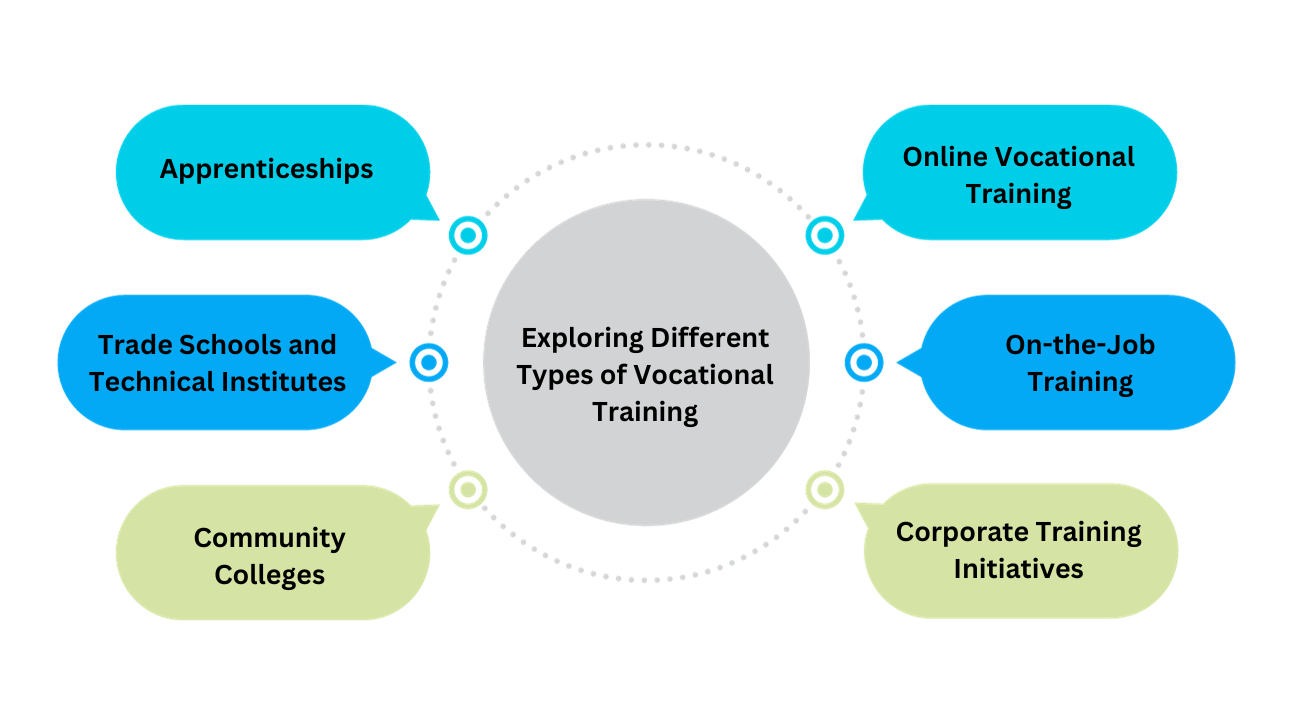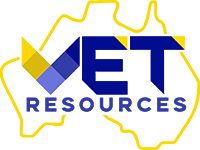Setting the Stage for Career Triumph with VET
In the realm of education and skill acquisition, few avenues offer the comprehensive and practical approach that Australian Vocational Education and Training (VET) qualifications provide. These qualifications pave the way for a rewarding journey into the workforce, offering an efficient and cost-effective route to employment through hands-on, applied learning experiences. Not just limited to immediate job opportunities, VET qualifications also open doors to higher education pursuits, showcasing their versatility in shaping successful careers.
Vocational Education and Training is one such tool which dynamic and practical, and it empower learners to excel in their chosen profession.
Understanding Vocational Training
At its core, vocational training is an education system designed to equip individuals with hands-on skills, specialised knowledge, and practical expertise that directly align with specific careers or industries. Unlike traditional academic pursuits that emphasise theoretical concepts, vocational training places you at the heart of real-world applications, enabling you to hit the ground running in your chosen field.
Practicality Meets Passion:
Vocational training is all about bridging the gap between classroom learning and the demands of your future job. By focusing on the practical aspects of your chosen profession, you’ll be better prepared to tackle the challenges and opportunities that lie ahead.
Speedy Entry to the Workforce:
One of the standout advantages of vocational training is its relatively short duration compared to traditional degree programs. This means you can enter the workforce sooner, equipped with the skills that employers are actively seeking.

Multiple Pathways to Success:
Vocational training doesn’t just come in one size—it offers a variety of pathways to cater to your interests and aspirations. Whether you’re drawn to hands-on trades, eager to embrace technology, or aiming for a specialised role in a corporate setting, there’s likely a vocational training program tailored just for you.
A Symbiotic Bond: Government-Industry Partnership
At the core of Australia’s VET sector lies a unique partnership between the government and industries. This symbiotic relationship serves as the bedrock for curriculum development, ensuring that VET courses are directly influenced by expert industry councils and representatives. The result Courses and qualifications are meticulously designed by industry specialists, aligning them with the latest trends, advancements, and demands of the professional world.

The Core Components of VET
VET programs typically include the following components:
- Technical Skills Development: VET programs are laser-focused on providing participants with the hands-on skills and expertise needed to excel in their chosen field. Whether it’s mastering intricate surgical techniques or crafting intricate software code, VET equips individuals with the practical abilities that employers seek.
- Industry-Relevant Knowledge: Beyond technical skills, VET also imparts industry-specific knowledge. This includes understanding regulations, best practices, and the latest trends that shape the industry’s landscape.
- Workplace Experience: VET often incorporates internships, apprenticeships, or on-the-job training. This exposure to real work environments helps learners bridge the gap between theory and practice.
Navigating the VET Landscape: Government’s Oversight
While industries play a pivotal role in shaping VET qualifications, the Australian government, both federal and state, dons the role of overseer. They ensure quality assurance of the VET sector, guaranteeing that the standards are maintained and that students receive the best education possible. Moreover, the government’s commitment extends to funding the VET programs, making education accessible to a wide spectrum of learners.
From Employment to Higher Education: VET’s Versatility
While VET qualifications are an express route to employment, they also serve as a stepping stone to higher education. Many VET graduates choose to further their studies by pursuing higher education degrees. The foundation laid by their practical VET training equips them with a unique perspective, setting them apart as individuals who not only possess academic knowledge but also hands-on experience.
Exploring Different Types of Vocational Training
- Apprenticeships: Apprenticeships provide a unique blend of on-the-job training and classroom learning. By working alongside experienced professionals, you’ll gain invaluable insights and skills, all while earning a wage.
- Trade Schools and Technical Institutes: If you’re passionate about a specific trade or vocation, trade schools and technical institutes offer targeted programs that equip you with the know-how needed to excel. From culinary arts to mechanics, the options are vast.
- Community Colleges: Community colleges offer a cost-effective and flexible way to acquire vocational skills. These programs can lead to associate degrees or certificates, giving you an edge in your chosen field.
- Online Vocational Training: Embracing the digital age, online vocational training lets you acquire skills from the comfort of your home. Flexible and convenient, online programs open doors to a variety of industries.
- On-the-Job Training: Many industries offer on-the-job training programs for new employees. This hands-on experience helps you build practical skills while immersing yourself in the professional environment.
- Corporate Training Initiatives: Corporations often invest in their employees’ growth through specialised training programs. This can be a stepping stone to advancement within your current job or the path to exploring new opportunities.

Embracing a Bright Future
In a world where adaptability and practical skills reign supreme, vocational training stands as a beacon of promise. By embracing vocational training, you’re not just learning a skill—you’re embarking on a journey of growth, transformation, and empowerment.
As you navigate the intricate landscape of your career, remember that vocational training is more than just a means to an end. It’s a foundation that supports your aspirations, empowers your dreams, and shapes you into a competent and confident professional. So, whether you’re exploring a new avenue or fine-tuning your existing skills, consider the remarkable benefits that vocational training can bring to your career journey. Your path to success begins with the right education, and vocational training might just be the key to unlocking your true potential.

The Work-Ready Advantage: Expertly Crafted VET Courses
The essence of VET qualifications lies in their practicality and relevance. Crafted by industry experts, these courses are tailored to make graduates work-ready from day one. The curriculum is a fine blend of theoretical knowledge and hands-on experience, creating a learning journey that mimics the real-world challenges and scenarios graduates will encounter in their careers.
Who is the VET Pathway Suited For?
Embracing Diversity: VET for All
One of the strengths of VET qualifications is their inclusivity. They cater to a diverse audience, including school leavers, career changers, and even those re-entering the workforce. The flexibility of courses, ranging from short-term certificates to comprehensive diplomas, accommodates various learning needs and career aspirations.
Life’s journey is far from a linear path that leads from school to a job and then retirement. It’s riddled with unexpected bends, transitions, and various routes.
The VET (Vocational Education and Training) pathway is one route that can facilitate your pursuit of the career and lifestyle you desire. It’s an excellent choice if you fall into any of the following categories:
1. Individuals returning to the workforce after caregiving duties
Re-entering the workforce can be a daunting prospect after taking a break for caregiving or other responsibilities. However, it also presents an opportunity to explore fresh career avenues and assess where your skills and passions align most effectively.
A VET course can serve as the catalyst propelling you into a new industry. It can also help you master the skills and technologies that may have evolved during your time away.
The demand for professionals in roles like Aged and Disabled Carers is consistently high. Undertaking a VET program in areas such as Individual Support, Aged Care, or Disability Care can significantly enhance your employability.
2. Professionals aspiring to advance their careers
If your goal is to climb the ladder within your existing industry, VET can equip you with the necessary skills to reach new heights.
With adaptable study options, you can acquire fresh skills without compromising your earning potential.
VET courses extend beyond individuals seeking a complete career change. Numerous courses focus on honing skills relevant to a diverse array of industries. Whether you’re eyeing a promotion or aiming for the next career stage, VET might be the vehicle to get you there.
For instance, in today’s business landscape, digital proficiency is more crucial than ever. Updating your expertise with a Certificate III in Business can position you at the forefront.
Alternatively, if you’re prepared to transition into a managerial role and oversee a team, consider a Certificate IV in Leadership and Management.
3. Professionals in the midst of a mid-career shift, aiming to reskill in a different domain
It’s common for individuals to switch between various roles throughout their working life. However, embracing a new industry often entails a steep learning curve.
If you’re embarking on a new trajectory, a VET course can assist you in gauging whether it aligns with your aspirations. Simultaneously, you’ll amass practical skills that enable you to step directly into the workforce upon completion.
Sculpting Futures: Career Opportunities with VET
The endgame of any education is the career it leads to. VET qualifications excel in this aspect, offering a plethora of career opportunities across industries. From trade skills to technology, healthcare to hospitality, VET graduates are well-equipped to enter the professional arena with confidence, armed with both knowledge and practical skills.
Numerous VET programs groom you for employment in resilient industries. For those desiring a career switch to a stable sector, VET emerges as an exceptional choice. Resilient industries that VET can prepare you for encompass:
- Healthcare and Social Assistance
- Education and Training
- Electricity, Gas, Water, Waste Services
- Agriculture, Forestry, Fishing
- Construction
For a tangible illustration, explore the journey of a woman who transitioned from the hospitality sector to becoming a motorcycle mechanic.
Diving into the VET Experience: Learning Environments
VET learning environments are a stark departure from traditional classroom settings. They mirror the actual workplaces, enabling students to immerse themselves in environments that replicate their future careers. This exposure not only fosters familiarity but also reduces the learning curve when transitioning into professional roles.
The Power of Choice: Tailored Learning Pathways
VET qualifications are not a one-size-fits-all approach. They empower learners with the ability to choose their learning pathways based on their interests, strengths, and aspirations. Whether someone envisions themselves as a master craftsman or a digital innovator, VET courses offer specialised routes to turn those dreams into reality.
Beyond Boundaries: International Recognition
The excellence of Australian VET qualifications transcends geographical boundaries. These qualifications are recognised internationally, opening doors to global career prospects. The practical nature of VET training equips graduates with skills that are valued universally, making them assets in a world characterised by interconnectivity.
Gateways to Excellence: TAFE Institutions and RTOs
VET qualifications are dispensed through two primary avenues: Technical and Further Education (TAFE) institutions and private Registered Training Organisations (RTOs). These institutions serve as the gateways to excellence, delivering a diverse range of courses that cater to an array of industries and professions. With a focus on hands-on learning and skill development, both TAFE institutions and RTOs contribute significantly to creating a competent and adaptable workforce.
Nurturing Skills Through Practical Learning
The hallmark of VET qualifications lies in their emphasis on practical learning. Through workshops, simulations, internships, and real-world projects, students acquire skills that transcend theoretical understanding. This experiential learning approach not only enhances their knowledge but also nurtures problem-solving abilities, teamwork, and adaptability – qualities that are highly sought after by employers.

It’s Never Too Late
Given the modern landscape where individuals engage in longer careers and diverse roles, VET represents an avenue for advancing further along your career trajectory or uncovering a new path that harmonises better with your aspirations.
Conclusion
In a world where hands-on skills and practical knowledge reign supreme, Australian Vocational Education and Training (VET) qualifications stand as a beacon of educational excellence. They bridge the gap between academia and industry, moulding individuals into work-ready professionals who are equally adept at theory and practice. With a government-industry partnership, expertly crafted courses, and pathways to both employment and higher education, VET qualifications shape destinies and lay the foundation for a successful career journey.
Suggested Read: How is Skills Insight empowering the VET (Vocational Education and Training) sector in Australia
FAQs
Q1: What is Vocational Education and Training (VET) in Australia?
A1: VET in Australia refers to education and training programs designed to provide practical skills and knowledge for specific industries and occupations. It focuses on preparing individuals for the workforce through hands-on learning and industry-relevant qualifications.
Q2: What are the key features of Australian VET qualifications?
A2: Australian VET qualifications emphasise industry relevance, practical skills, and employability. They cover a wide range of industries, from traditional trades to modern professions, and are recognised nationally and often internationally.
Q3: What types of qualifications are offered in the Australian VET system?
A3: The Australian VET system offers a variety of qualifications, including Certificates I to IV, Diplomas, Advanced Diplomas, and Vocational Graduate Certificates and Diplomas. These qualifications cater to different levels of skills and expertise.
Q4: Are VET qualifications recognised by employers in Australia?
A4: Yes, VET qualifications are highly regarded by employers in Australia. They are designed in collaboration with industry experts, ensuring graduates have the skills and knowledge needed to excel in their chosen field.
Q5: Can international students pursue VET qualifications in Australia?
A5: Absolutely. Australia is a popular destination for international students seeking VET qualifications. These qualifications offer practical skills and a pathway to employment both in Australia and globally.
Q6: How do I choose the right VET qualification for my career goals?
A6: Consider your interests, strengths, and desired career path. Research different VET qualifications, their content, job outcomes, and industry recognition. Seek advice from career counsellors if needed.
Q7: What is the Australian Qualifications Framework (AQF)?
A7: The AQF is a national framework that classifies and sets standards for qualifications in Australia, including VET qualifications. It ensures consistency and quality across different education sectors.
Q8: Are there opportunities for further education after completing VET qualifications?
A8: Yes, VET qualifications often provide pathways to higher education. Many universities in Australia offer credit transfers or advanced standing to VET graduates, allowing them to pursue higher degrees.
Q9: Can I study VET qualifications online?
A9: Yes, many VET providers in Australia offer online courses, providing flexibility for learners. Online VET programs often include interactive modules, virtual labs, and practical assessments.
Q10: How do I apply for a VET course in Australia?
A10: Research VET providers and their offerings, then apply directly to the chosen institution. International students may need to apply for a student visa and meet specific requirements.
Q11: Are there financial support options for VET students in Australia?
A11: Yes, Australia offers financial support options for VET students, including government-funded initiatives, scholarships, and loans to assist with tuition fees and living costs.
Q12: What is the role of industry partnerships in Australian VET?
A12: Industry partnerships are integral to Australian VET. They ensure that VET qualifications align with industry needs, resulting in graduates who are job-ready and equipped with the skills employers seek.
Australian VET qualifications provide a direct path to a successful career by equipping learners with practical skills and industry-relevant knowledge. Whether you’re a local or international student, VET offers a valuable stepping stone toward a brighter future.
Disclaimer:
The information presented on the VET Resources blog is for general guidance only. While we strive for accuracy, we cannot guarantee the completeness or timeliness of the information. VET Resources is not responsible for any errors or omissions, or for the results obtained from the use of this information. Always consult a professional for advice tailored to your circumstances.






